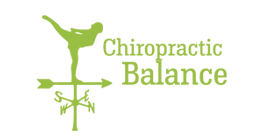
We know it’s good for us, we know that we should take it when we’re feeling a bit immune challenged by a cold – but what is the real deal with Vitamin C and what makes it so important to our health? Today’s blog is dedicated to delving a little deeper into the benefits of this powerful nutrient as well as letting you know about the extra value we are adding to your visits at Chiropractic Balance.
Also known as ascorbic acid, vitamin C is a water-soluble vitamin recognised as one of the most effective and safest nutrients. It is vital to the growth, development and repair of all body tissues and is also involved in iron absorption, wound healing, immune system function and the maintenance of cartilage, bones and teeth. The antioxidant properties of vitamin C help to protect cells against damage caused by harmful molecules called free radicals as well pollutants and toxic chemicals.
As you may have seen written on the walls of our practices, the adjustments we give and everything we say and do is designed to help you be extraordinary in your health and life. We want to give your body the best chance to be healthy and that is why we now offer a Thompson’s Vitamin C chewable tablet to enjoy with your water and walk after your adjustment. But don’t just take our word about the many health benefits, have a look at what the latest research is saying about the importance of Vitamin C:
1. STRESS: Vitamin C plays a role in brain health as it is necessary in certain neurotransmitters such as serotonin, which is responsible for helping you to feel good. It is also involved in the synthesis of the stress hormones adrenaline and nor-adrenaline required for your fight-or-flight response. In a recent meta-analysis study, Vitamin C was shown to be beneficial to individuals whose immune systems’ had weakened due to stress. The nutrient was recognised as sensitive to stress and one of the first to be depleted in alcoholics, smokers and the obese. Measured Vitamin C levels are an ideal marker of overall health in today’s stressful world.
2. COLDS: Although not officially recognised as a cure, Vitamin C does have good evidence showing that consumption can reduce the risk of developing further complications such as pneumonia or lung infections.
3. SKIN: In addition to positive effects on the inside of our bodies, nutritional studies also draw links between higher vitamin C intakes and a lower likelihood of wrinkled appearance and skin dryness associated with aging. This is in part related to Vitamin C’s ability to improve the elasticity of skin as well as protect from the harmful UV rays of the sun
4. WOUND HEALING: As stated earlier, Vitamin C is an essential factor in the production of collagen, which is a certain type of connective tissue that makes up your skin, muscles, tendons and ligaments. Vitamin C can speed up the healing process and help you to recover faster from minor cuts to deep wounds, burns or broken bones.
5. BREATHLESSNESS AND ASTHMA: A European study suggested that Vitamin C is involved in helping to substantially reduce bronchoconstriction, the narrowing of airways, that can occur from rigorous activity or during an asthma attack. In addition to this, the antihistamine properties of Vitamin C can also help improve lung and airway function by reducing the inflammation to these structures in asthmatic people.
6. ARTHRITIS: Many types of arthritis are caused by the degeneration of the cellular processes responsible for production and repair of the cartilaginous tissues in our joints. Sustained physical stress to the cartilage in the joints results in the collagen being destroyed but also can interfere in the production of new tissue. Not only is Vitamin C helpful in reducing pain, swelling and inflammation in arthritic joints but it can further help to maintain healthy joints, keeping them flexible.
Unlike other mammals the human body does not have the capacity to generate or store vitamin C hence the reason it must continuously be a part of our daily diet. How do you know if you are getting the right amount for you? Well some signs that you may need more vitamin C to keep up with the demands of your life include: dry splitting hair, rough or dry scaly skin, nosebleeds, bleeding or swollen gums, easy bruising, decreased wound healing rate or the decreased ability to ward off infection.
Important sources of vitamin C are any citrus fruits, broccoli, brussel sprouts, cabbages and cauliflower as well as other leafy vegetables, potatoes, peppers, chillies, watercress, parsley, and of course our local kiwi fruit. The fresher the fruit and vegetables the more vitamin C they will contain and eating them raw is best. But if you are cooking your sources of vitamin C, do so on a low heat and for a short time to preserve the vitamin. Alternatively, if you’re enjoying the recent rise in popularity of fermented foods, studies on sauerkraut have shown that 1 week fermented cabbage contained 6 times higher levels of vitamin C than the same helping of unfermented cabbage!
At Chiropractic Balance we understand that it can sometimes be difficult to always get your required daily amounts of vitamins, minerals and nutrients and wanted to make living a balanced life just that little bit easier for you. Enjoy an extra vitamin C boost on us to help with your adjustment at your next visit!


